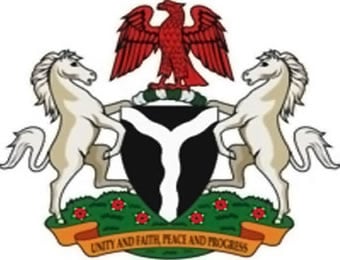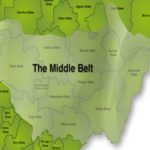The three worked independently but harmoniously and made a mark in effectively managing intelligence affairs of Nigeria, especially against internal and external subversion. Perhaps that informed the heated argument that followed the recent approval of the appointment of the Director-General of the NIA, Ahmed Abubakar by the President of the Federal Republic of Nigeria, President MuhammaduBuhari. Although the debate seems to have subsided, the development further brought the significance of the agency to the forefront. Consider the saying: “Truth is so obscure in these times, and falsehood so established, that, unless we love the truth, we cannot know it.” Blaise Pascal must have had Nigeria in mind when he wrote these lines. The French mathematician, physicist, inventor, writer and Catholic theologian who lived between 1623 and 1662 must have been clairvoyant enough to know that 400 years after his death, the very sentiments he expressed would be manifesting in these climes. In truth, when falsehood is allowed to fester unchallenged, it might soon be taken by the undiscerning as the gospel. And in no other matter is this so established in Nigeria today than in the several laughable tales being fabricated about the new Director-General of the National Intelligence Agency (NIA), Ahmed RufaiAbubakar.
Early last month, the Presidency announced the approval of the appointment by President Buhari of the then Senior Special Assistant to the President (SSAP) on Foreign Affairs/International Relations, AmbasadorAbubakar as the substantive head of the NIA. Abubakar’s predecessor, Ayo Oke, had been relieved of his post after some massive cash in different foreign currencies was discovered at a private apartment in Ikoyi. The money allegedly belonged to the NIA. But no sooner had Abubakar’s name been announced than all hell broke loose. Different salacious narratives began to appear on the social media concerning how Abubakar was far from deserving of the position. Some claimed he was partly Nigerian and partly Chadian, and argued that such a critical position shouldn’t be given to a man with dual nationality. Some claimed his wife hailed from Morocco and as such, his total loyalty to Nigeria couldn’t be guaranteed. He was also accused of failing promotion exams while serving with the agency and was forced to retire as an assistant director. There were other juicy narratives that clothed Abubakar in a garb of ineptitude, even as those spinning the tales were also unsparing in their demonization of the appointer, President Buhari.
It is bewildering that not a single one of those making the allegations provided any evidence to justify their fraudulent assertions. Yet, many online platforms lapped up the evidently juicy stories, and even some established media were so naive that they bought the obvious lies without asking critical questions. None of his traducers sought to peruse the man’s resume to discover if he indeed merited his appointment or not. None bothered to show us Abubakar’s Chadian passport. Not many were curious enough to ask how a supposed alien was able to get enlisted into the country’s elite intelligence agency without anyone asking questions about his background and nationality. Yet it is common knowledge even to the ignorant that such employments never happen until the country’s security agencies have done considerable checks on the subject. The Presidency has since responded to the tissue of lies on Abubakar, and the matter seems to have been laid to rest. But for posterity’s sake, it is apposite that further clarifications be made on the Ahmed Abubakar issue.
Abubakar is a native of Katsina State. At a point in his childhood, his parents, who were Islamic scholars, relocated to Ndjamena in Chad where Abubakar had his primary education. But he soon returned to his native country Nigeria, for his secondary and tertiary education. He obtained a Grade 11 Certificate from the Arabic Teachers’ College in Katsina before moving to the Bayero University Kano where he obtained a B.A in French Language and Literature, and an M.A in Francophone Maghrebian Literature. He was a graduate assistant and an assistant lecturer with the Bayero University, Kano before taking up an appointment with the Katsina State Government. In 1993, he joined Nigeria’s Foreign Office and served meritoriously for many years before honourably bowing out of service in 2005 as a deputy director, not an assistant director as those vilifying Abubakar and President Buhari would have us believe. Thrice in the course of his illustrious career did Abubakar win merit awards for competence and meritorious service. Not once, it has Between January 2006 and April 2008, he was the Senior Political Affairs Officer/Head of Political Affairs Department with the African Union office in Khartoum, Sudan.
They also claim that having retired as an assistant director, he is too junior to be made the NIA boss. Well, Abubakar retired as a deputy director after serving his country meritoriously. But even if he had left the Foreign Service as assistant director, Buhari would not have committed hara-kiri by appointing him the Director-General of the NIA. Several far junior serving and retired officers had been appointed into critical offices before, and heavens did not fall. After all, in this country, the late General OwoyeAzazi was succeeded as National Security Adviser by Lt. Colonel Sambo, and there were no ululations from the camp of the current naysayers then. Nigeria is our country. We should constantly seek its success, not working hard to ensure its collapse through envious and unsubstantiated allegations against our fellow citizens.
- Aduloju, a public affairs analyst, lives in Lagos
WATCH TOP VIDEOS FROM NIGERIAN TRIBUNE TV
- Relationship Hangout: Public vs Private Proposals – Which Truly Wins in Love?
- “No” Is a Complete Sentence: Why You Should Stop Feeling Guilty
- Relationship Hangout: Friendship Talk 2025 – How to Be a Good Friend & Big Questions on Friendship
- Police Overpower Armed Robbers in Ibadan After Fierce Struggle






